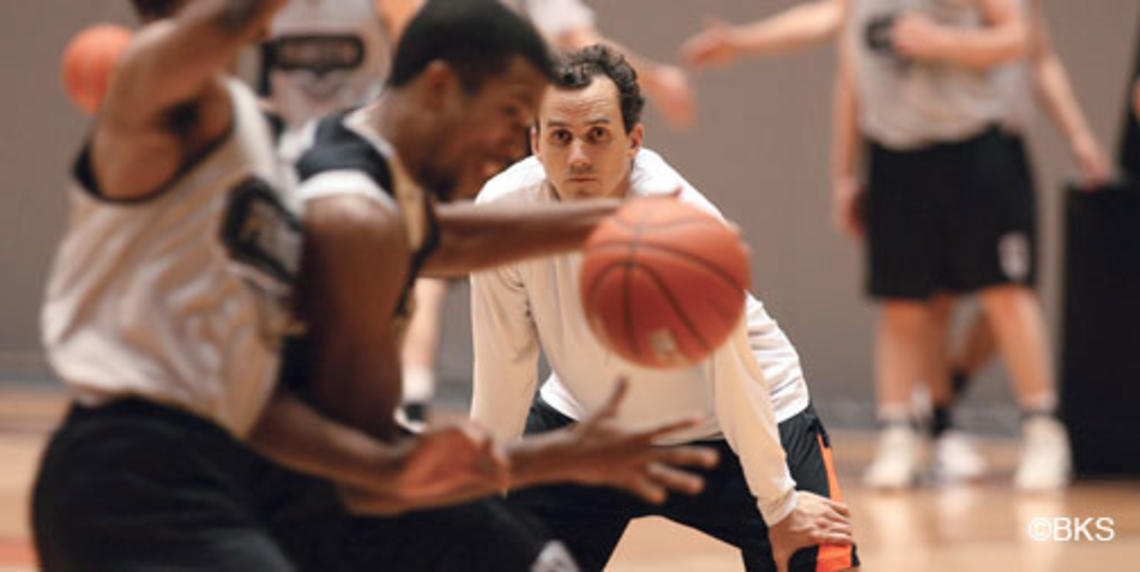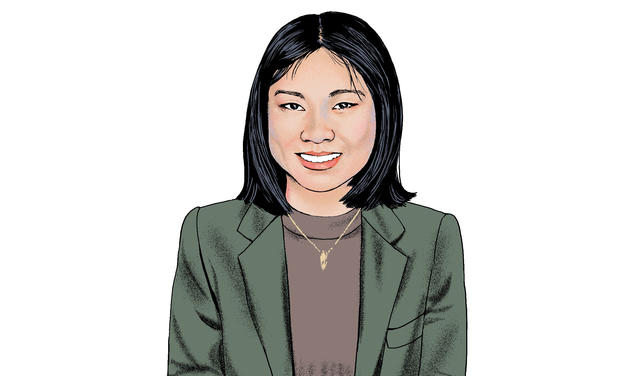
As a high school athlete in northern Indiana, Mitch Henderson ’98 was a three-sport star and a Division I basketball prospect worthy of wooing. But the recruiting pitch he remembers most featured more criticism than praise. Princeton coach Pete Carril and assistant Bill Carmody told the young point guard exactly what he needed to do to get better and asked if he was willing to improve.
“I really appreciated that approach,” Henderson said.
He did improve, harnessing his speed and energy to become a dynamic floor leader, and the Tigers excelled, winning three consecutive Ivy League titles and reaching the top 10 of the national rankings in 1997–98, his senior year.
Now, in his first season as Princeton’s head coach, Henderson is directing the same type of player development to fill the openings left by Kareem Maddox ’11 and Dan Mavraides ’11, two high-scorers and defensive leaders from last season’s Ivy championship team.
Individual growth is, in Henderson’s view, as much a cornerstone of the Princeton program as the backdoor layup. Consider Maddox, for example: As a junior, he averaged 6.5 points in 18 minutes per game as a reserve. A year later, he more than doubled his scoring and dominated the post as the league’s Defensive Player of the Year.
Mavraides made a significant jump two years earlier, from a freshman who seldom left the bench to a sophomore who averaged 10 points per game.
“We get a lot of notoriety for the history and tradition of the program, but it’s always been about guys getting better and putting their time in,” Henderson said. “I like being at a place where that’s emphasized.”
Henderson’s path to the head coach’s office began at Northwestern in 2000, when Carmody took over the program and asked his former captain to be an assistant coach.
In 11 seasons at Carmody’s side, Henderson grew to become his lead assistant and the Wildcats made significant progress, reaching the 20-win mark in each of the last two seasons.
Carmody said that Henderson constantly looks for new inspiration as a coach, drawing on everything from pro basketball to European soccer. “He’s not stuck in a certain way,” he said. “He’s always looking to grow and tweak things.”
When joining a new program, coaches have two options: Make a clean break from the past, or stress continuity. Henderson seems to believe in the latter, starting with his first hire, top assistant coach Brian Earl ’99, who also served on Sydney Johnson ’97’s staff. For the team’s halftime room at Jadwin Gym, Henderson ordered poster-sized prints of Douglas Davis ’12’s winning shot from last season’s Ivy playoff against Harvard — to “celebrate things that are done well,” he said.
At the same time, the new coach has kept his team looking forward, to a tough nonconference schedule (including road games at Florida State and North Carolina State) and what should be a fiercely competitive Ivy season. The Tigers, with three starters returning, plan to rely on the things they did best in 2010–11: stifling defense, strong rebounding, and taking care of the ball on offense.
“This current team reminds me of the group that I played with,” Henderson said. “They’re close. They care for each other, they believe in getting better, and they believe in doing the little things well.”










0 Responses